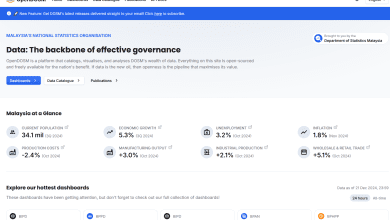AKPK Story 7: Their First Child


This is Part 7 of a continuing 12-part series on financial planning. Two issues back, we read about how Adam and Aida worked out their budget and other related-matters to consider before buying a house. This week, we’ll look at another huge commitment that comes with an even greater responsibility – that bundle of joy!
After saving for almost a year, Adam and Aida finally had enough for the down payment of their dream home. They had already set eyes on a particular piece of property which is a freehold double-storey home – an old house but very well-maintained. It is located quite near to Adam’s parent’s house. There’s also a hypermarket, a school, hospital, a playground and shops nearby. The owner originally asked for RM350,000 but after much negotiation, they finally settled at RM325,000. They paid RM25,000 as down payment and took out a loan for RM300,000 for 30 years. Aida applied for her employer bank’s staff loan facility at a mere 3% p.a. with a monthly repayment of only RM1300 instead of the initial budgeted amount of RM2000. This was a huge saving!
With a home of their own comes additional expenses to contend with, like utility bills, quit rent, property assessment, home insurance, occasional maintenance and repairs. In essence they do not own the home until such time as they finish paying off the loan. Meanwhile, it would be wise for them to cover that liability with an insurance programme should something unfortunate happen to either of them. Most often, banks would recommend taking out a Mortgage Reducing Term Assurance (MRTA) which may be the most affordable option. However, we can also top up on our personal life insurance programme to cover for such liability. Adam and Aida decided to increase their personal insurance coverage by RM150,000 each as this would give them greater control and flexibility.
Bearing all this in mind, they relooked their budget:
|
INCOME
|
EXPENSES
|
||
|
Take-home Pay Adam 5,000 Aida 4,000 |
9,000
|
Savings |
900 |
|
|
|
Life Insurance Premium Adam 400 Aida 300 |
700 |
|
|
|
Repayment of PTPTN Loan
|
300
|
|
|
|
Home Instalment
|
1,300
|
|
|
|
Utility Bills
|
250
|
|
|
|
Quit Rent, Assessment & Ins.
|
50
|
|
|
|
Gift to Parents (Both)
|
1,000
|
|
|
|
Food
|
1,500
|
|
|
|
Petrol & Toll
|
500
|
|
|
|
Car Maintenance, Road Tax & Insurance
|
200
|
|
|
|
Clothing & Entertainment
|
600
|
|
|
|
Telephone Bill
|
200
|
|
Total Income
|
9,000
|
Total Expenses
|
7,500
|
|
|
|
Balance of Income
|
1,500
|
|
Note: Take-home pay is net of EPF & SOCSO contributions and taxes.
|
|||
They were pleasantly surprised that they were still able to have a surplus. Now they felt it’s time to start a family especially after much hinting from their parents. All this while, they were unsure if they could afford to start one (it costs a lot to raise a kid nowadays!) but after having reviewed their budget, they felt that they could manage.
Before you embark on your journey to parenthood, consider some of the following issues:
Are you ready for this adventure? Your whole life will change and once decided, there’s no turning back. Take a parenting course, learn some basics of parenting via “on-the-job” learning or with some “mentoring” from your own parents. Get yourselves physically, mentally, emotionally and financially prepared.
What are your childcare plans? Make plans for your child well before he or she is born. Consider your options: at-home care in your home, home-based childcare in another home or traditional childcare centres. Do get referrals and check out the cost. However, if one of you is planning to stay home full-time to care for your child, decide on who’s going to stay home and who’s going to bring home the money.
Review your monthly budget. You’ll see increases in grocery expenses (diapers, formula milk, napkins and laundry detergent), utility bills (more laundry to wash) and medical expenses. If you’re planning to return to work, the cost of childcare can add several hundred ringgit a month to your expenses.
Remember, any expenses can be managed with a predetermined budget and commitment to make necessary lifestyle adjustments.
Couples should discuss and plan objectively to make necessary adjustments to their lives to welcome their new family member.


